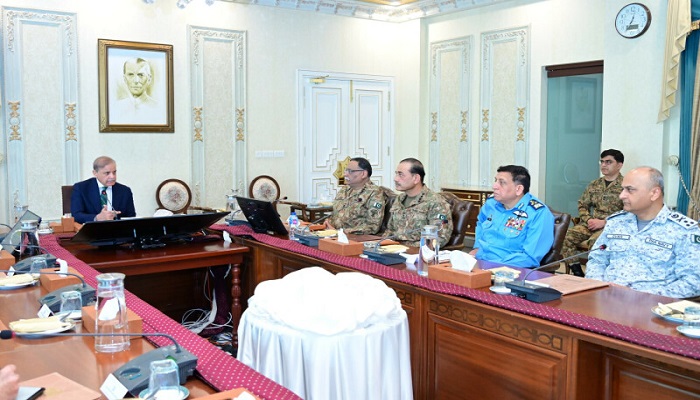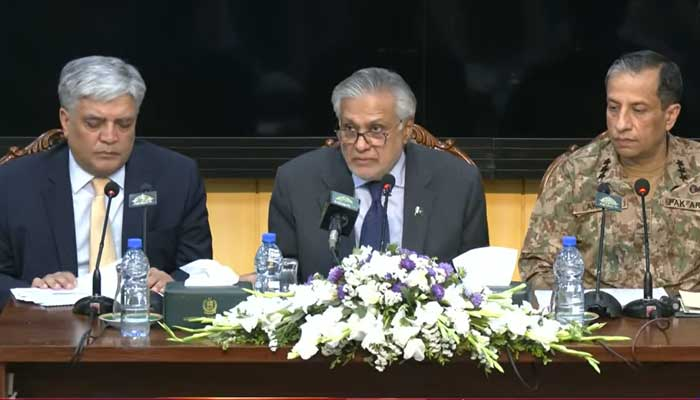Tensions Escalate as Both Nations Exchange Retaliatory Measures Following Deadly Kashmir Attack.
In a dramatic escalation of hostilities, Pakistan has responded to India actions by shutting its airspace to all Indian airlines, suspending trade ties, and rejecting the suspension of the historic Indus Waters Treaty.
These measures come in retaliation for India’s recent actions following the deadly Pahalgam attack in Indian-occupied Kashmir, which claimed the lives of 26 civilians, including foreign nationals.
The latest series of diplomatic and economic reprisals has sent bilateral relations between the nuclear-armed neighbors to their lowest point in years. Pakistan’s move follows India’s aggressive stance, including revoking the Indus Waters Treaty, closing the Wagah-Attari land crossing, expelling Pakistani diplomats, and halting trade.
Russia Offers to Mediate Dialogue Between Pakistan and Afghanistan
The crisis has significantly raised tensions, further deepening an already fraught relationship.
On Thursday, Pakistan’s Foreign Ministry made a formal announcement that it was closing its airspace to all Indian-owned or operated airlines, suspending both direct and indirect trade, and halting all visa services for Indian nationals.

This response came just a day after India revoked the 1960 Indus Waters Treaty and took a series of punitive steps, including canceling all visas issued to Pakistani nationals and ordering Pakistani diplomats to leave within a week.
In a further show of strength, Pakistan’s Foreign Ministry summoned Indian Chargé d’Affaires Geetika Srivastava to formally convey Islamabad’s protest. During the meeting, Pakistan handed over a written démarche outlining its decisions in response to India’s actions. Pakistan also made it clear that any Indian attempt to divert water under the Indus Waters Treaty would be considered an “act of war” and would be met with the full force of the country’s national power.
After Pahalgam Incident, India Unleashes Diplomatic Offensive on Pakistan, Islamabad Weighs Response
Diplomatic tensions have skyrocketed since the Pahalgam attack, with both sides blaming each other for the rising violence in the disputed region of Kashmir.
Indian authorities accused Pakistan-based elements of orchestrating the attack, which was blamed on Lashkar-e-Taiba. However, New Delhi has not provided verifiable evidence to support these claims, drawing sharp rebukes from Islamabad.
Pakistan’s National Security Committee (NSC), chaired by Prime Minister Shehbaz Sharif, firmly condemned India’s suspension of the Indus Waters Treaty and warned that any attempt to cut off Pakistan’s water supply would be considered an “act of war.” The NSC also resolved to suspend all trade with India, permanently shut the Wagah border crossing, and prohibit Indian airlines from flying over Pakistani airspace.

The economic fallout of the escalating tensions has been immediate, with Pakistan’s sovereign bonds dropping by over 4 cents as global markets reacted to the rising risk of military conflict. Trade between the two countries, already limited due to previous political hostilities, is expected to take a further hit, with bilateral trade routes, including the land corridor through Wagah-Attari, now closed indefinitely.
One of the most significant aspects of this latest conflict is India’s unilateral suspension of the Indus Waters Treaty, which governs the shared waters of the Indus River system.
Pakistan and China Discuss Enhanced Security Measures for Chinese Nationals
The treaty has survived decades of conflict between the two countries and even two full-scale wars, but India’s recent actions have raised concerns that the agreement may be on the brink of collapse.
Pakistan is heavily reliant on the water resources from the Indus River for irrigation and hydropower, and any attempt to limit Pakistan’s share of these waters would have devastating consequences for the country’s agriculture and energy sectors.
Pakistan has vowed to defend its water rights and warned that any violation of the treaty would be met with the full spectrum of national power.
The Pahalgam attack on Tuesday, which targeted tourists and killed 26 people, has once again brought the Kashmir issue to the forefront of bilateral relations. Kashmir has long been a contested region, with both India and Pakistan laying claim to the entire territory.
The region has been the cause of two of their three wars and continues to be a flashpoint for military and diplomatic tensions.
China Reaffirms Support for Pakistan’s Counterterrorism Efforts
India has often accused Pakistan of supporting the insurgency in Kashmir, while Islamabad maintains that it only offers diplomatic and moral support to the region’s fight for self-determination.
The recent attack has served to exacerbate these longstanding tensions, with both sides blaming each other for fueling violence in the region.
As tensions between the two countries deepen, the international community is closely watching developments, especially given that both India and Pakistan possess nuclear weapons. Diplomatic backchannels have gone quiet, and there are increasing fears that the conflict could spiral into a broader confrontation.
Pakistan’s Ministry of Foreign Affairs has briefed a range of foreign diplomats, including representatives from Saudi Arabia, Oman, UAE, Germany, and China, on the latest developments. Foreign Secretary Amina Baloch led the briefing session, during which she repudiated what Pakistan described as India’s “disinformation campaign” and warned against escalating tensions further.
Pakistan has reiterated its commitment to regional stability and peace, calling on India to stop its provocative actions and engage in dialogue to prevent further escalation.
Pakistan Kills 16 militants in North Waziristan Amid Growing Border Tensions with Afghanistan
As the situation continues to unfold, the possibility of a full-blown crisis remains, with both countries remaining entrenched in their positions.
The next steps in this volatile situation will be closely watched by the international community, particularly given the nuclear capabilities of both India and Pakistan and the longstanding conflict over Kashmir.



